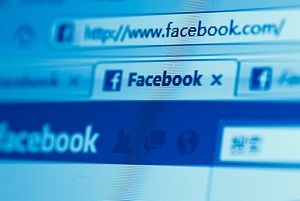The Malaysian government revealed that it is studying a proposal to ban Facebook, in response to the rising number of abuses reported on the popular social network.
Communication and Multimedia Minister Datuk Seri Ahmad Shabery Cheek made the announcement after a Facebook user posted a doctored photo of a road accident which insulted Malaysian King Tuanku Abdul Halim.
“If the people are of the opinion that Facebook should be closed, we are prepared to look into the matter,” said Shabery. But the minister also admitted that blocking Facebook is “radical and quite impossible” considering there are more than 15 million Facebook users in Malaysia.
Netizens and activists quickly lambasted the ministry for contemplating the social network’s closure. For free speech advocate Masjaliza Hamzah, the proposal to ban Facebook is another proof of the government’s distorted view of the Internet. Woon King Chai of the Centre for a Better Tomorrow wrote that it is unnecessary to censor Facebook since the majority of users are responsible. “Is the minister also suggesting that cars should be banned in Malaysia too because they cause road accidents and fatalities?”
Shabery acknowledged that there are only 2,000 cases of abuse reported by Facebook users.
Many also reminded the government of the overall positive impact of Facebook in society. Aside from providing a platform for youth interaction, Facebook has also boosted business opportunities in Malaysia.
As an alternative to closing down Facebook, some have suggested the registration of Facebook accounts with the government and the amendment of the Sedition Act to cover those who use social media to spread religious hate speech. But the problem with these proposals is that even if they do not advocate the absolute censorship of Facebook, they also pose a threat to free speech.
Meanwhile, the national police force reported that it has already formed a task force to monitor and take action against those who abuse social media to spread racist remarks and hate speech.
Shabery’s idea of a Facebook ban is not entirely new. Two weeks ago, Malaysia’s former Prime Minister Mahathir Mohamad called for the censorship of the Internet to protect public morality.
Mahathir has already been advocating a stricter regulation of the Internet for several months, but he reiterated his demand after claiming that his article about the Jews and the conflict in Palestine has been “prevented from being linked to Facebook without any explanation.
“The internet is not the free alternative to the state-controlled print and electronic media it is touted to be. It is subject to even more censorship than Governments could exercise. The people who host these platforms and servers can censor,” wrote Mahathir in his widely read blog.
His post was likely blocked because it was reported for abuse after he described the Jews as behaving worse than the Nazis.
Mahathir argued that Internet censorship is needed to protect children and the public from being exposed to dangerous topics.
“Incest, child sex, sex with animals, sexual parties, sex in public and many other practices which we still feel are wrong will soon be a part of the expression of freedom and equality. All these will [be] promoted on the internet. I don’t care how sacred is freedom but I think the time has come for Governments, at least the Malaysian Government to censor the internet,” he wrote.
Mahathir’s contention that his post was blocked by Facebook is indeed a cause for concern, but his proposed remedy – the absolute censorship of the web – is alarmist, and an extreme approach to advocating a safer Internet. He should recall the bill he signed in 1999, which laid down the framework as to why the Internet must remain open and free for the benefit of society.
Internet freedom in Malaysia is essential since mainstream media is already heavily regulated by the state. No less than Malaysian Prime Minister Najib Razak has repeatedly assured the public that online free speech will never be curtailed. But Najib should advise the government’s ministers, retired politicians, and other influential authorities to refrain from making direct and indirect threats about undermining that freedom.
































